Is there Life Elsewhere in the Cosmos?
by Magis Center of Reason and Faith
Filed under Cosmology
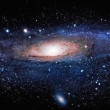
The December Wall Street Journal editorial by Eric Metaxas, "Science Increasingly Makes the Case for God", has generated significant interest and discussion. Metaxas’ main point is that the probability of life existing in our inhospitable universe is so close to zero that only a supernatural explanation (i.e., God) can account for our existence here on Earth. We agree with Mr. Metaxas that the odds against an anthropic universe are staggeringly high, but we’re not as convinced that... Read More
Why Something Rather than Nothing?
by Matt Fradd
Filed under Cosmology, The Existence of God

After a night of teenage exuberance, my friends and I would usually end up lying out on a country road, gazing up at the starlit Australian sky, discussing the meaning of it all. We considered ourselves nonreligious, and yet there was something (isn’t there?) about the enormity of the sky that humbled us, stirred us, inspired us to ask deep questions about, well, everything. We called these GLUE conversations—GLUE being an acronym for God, life, the universe, and everything. One of... Read More
Can We Make Sense of the World?
by Dr. Edward Feser
Filed under Cosmology
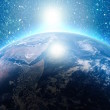
Is reality intelligible? Can we make sense of it? Or is the world at bottom an unintelligible “brute fact” with no explanation? We can tighten up these questions by distinguishing several senses in which the world might be said to be (or not to be) intelligible. To make these distinctions is to see that the questions are not susceptible of a simple Yes or No answer. There are in fact a number of positions one could take on the question of the world’s intelligibility –... Read More
What the Media Got Wrong about Pope Francis and Evolution
by Joe Heschmeyer
Filed under Cosmology, Evolution
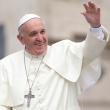
Have you heard about Pope Francis’ recent comments about God, evolution, and Creation? If so, chances are you’ve heard wrong. Here are four things you should know: 1. Pope Francis is Not an Atheist Amazingly, the popular news site Independent Journal Review (IJ Review) ran — and as of this writing, is still running — the following headline: “God is not a Divine Being”? We’re supposed to believe that the pope got up, denied that God was actually God, and that everything... Read More
What if We Lived in a Simulated Universe and Worshiped a Pimply Teenager?
by Dr. Stacy Trasancos
Filed under Cosmology, The Existence of God
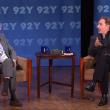
Because the audience at Strange Notions is a combination of Catholics and atheists, I thought the comments in this interview between Brian Greene and Richard Dawkins would be a fun change of pace for a discussion. Here's a summary of the interview. Dr. Nick Bostrom, a philsopher at the University of Oxford, proposed an argument that in the future we will have powerful supercomputers that can create universes 'in silico.' In these simulated universes, sentient beings will exist unaware... Read More
Aliens, Angels, and the Cosmos
by Fr. Dwight Longenecker
Filed under Cosmology
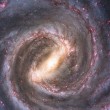
Are you familiar with the Fermi Paradox? It goes something like this: “There are billions of stars out there like the sun. Therefore, statistically there must be billions of planets like earth where intelligent life has developed. Given the vast amount of time, and the vast number of possible 'other earths,' there must be other intelligent life forms who have invented space travel. Yet while this seems extremely probable, we haven't encountered any." There are several problems with... Read More
Cosmology and Causation: Why Metaphysics Matters
by Dr. Edward Feser
Filed under Cosmology, The Existence of God

Several people have asked me to comment on the remarks about causation made by atheist physicist Sean Carroll during his recent debate with William Lane Craig on the topic of “God and Cosmology.” (You’ll find Craig’s own post-debate remarks here.) It’s only fair to acknowledge at the outset that Carroll cannot justly be accused of the anti-philosophy one finds in recent remarks by physicists Stephen Hawking, Lawrence Krauss, and Neil deGrasse Tyson. Indeed, Carroll has... Read More
Why Our Unique Solar System Points to God
by Thomas McAvoy
Filed under Cosmology
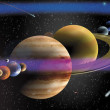
In an earlier post on this site titled "How Contemporary Physics Points to God", Fr. Robert Spitzer addresses the Big Bang and the five anthropic conditions that exist in of our universe. These anthropic conditions lead to intelligent life on our planet. Concerning the anthropic conditions Fr. Spitzer writes: “The odds against all five of the anthropic coincidences happening randomly is exceedingly and almost unimaginably improbable. Most reasonable and responsible individuals would... Read More
What Does the Latest “Big Bang” Discovery Mean?
by Trent Horn
Filed under Cosmology
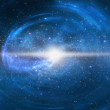
Over the past few days the world of cosmology and astrophysics has gone “supernova.” Researchers affiliated with the BICEP2 telescope in Antarctica announced that they had discovered empirical evidence for a key part of the Big Bang theory, cosmic inflation. One aspect of this discovery that I found really interesting is that it forms an almost perfect parallel to a discovery that was made sixty years ago. The First Telescope Discovery In the early twentieth century, the Belgian... Read More
Cosmology and Creation: Contrasting Notions
by Fr. Andrew Pinsent
Filed under Cosmology, The Existence of God
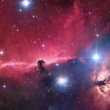
NOTE: Yesterday we shared a guest post on cosmology from one of our top non-theistic commenters, Paul Rimmer. Today, we're posting a response from Fr. Andrew Pinsent, Research Director at Oxford University's Ian Ramsey Centre for Science and Religion. As a Catholic priest, and former particle physicist at CERN, I thank Strange Notions for the opportunity to respond to Paul Rimmer’s article on the Big Bang. For those hoping for instant controversy, I am sorry to have to... Read More






